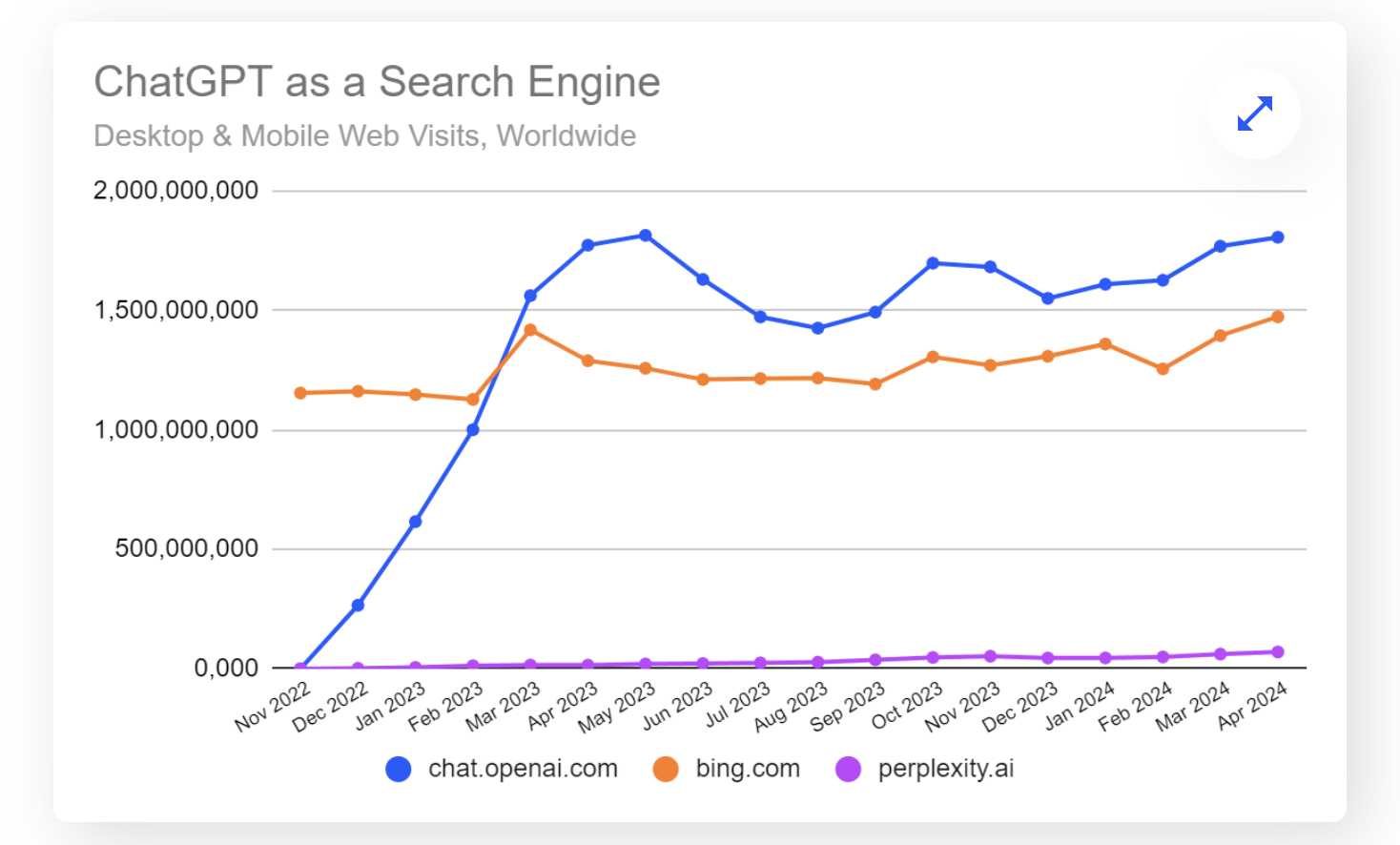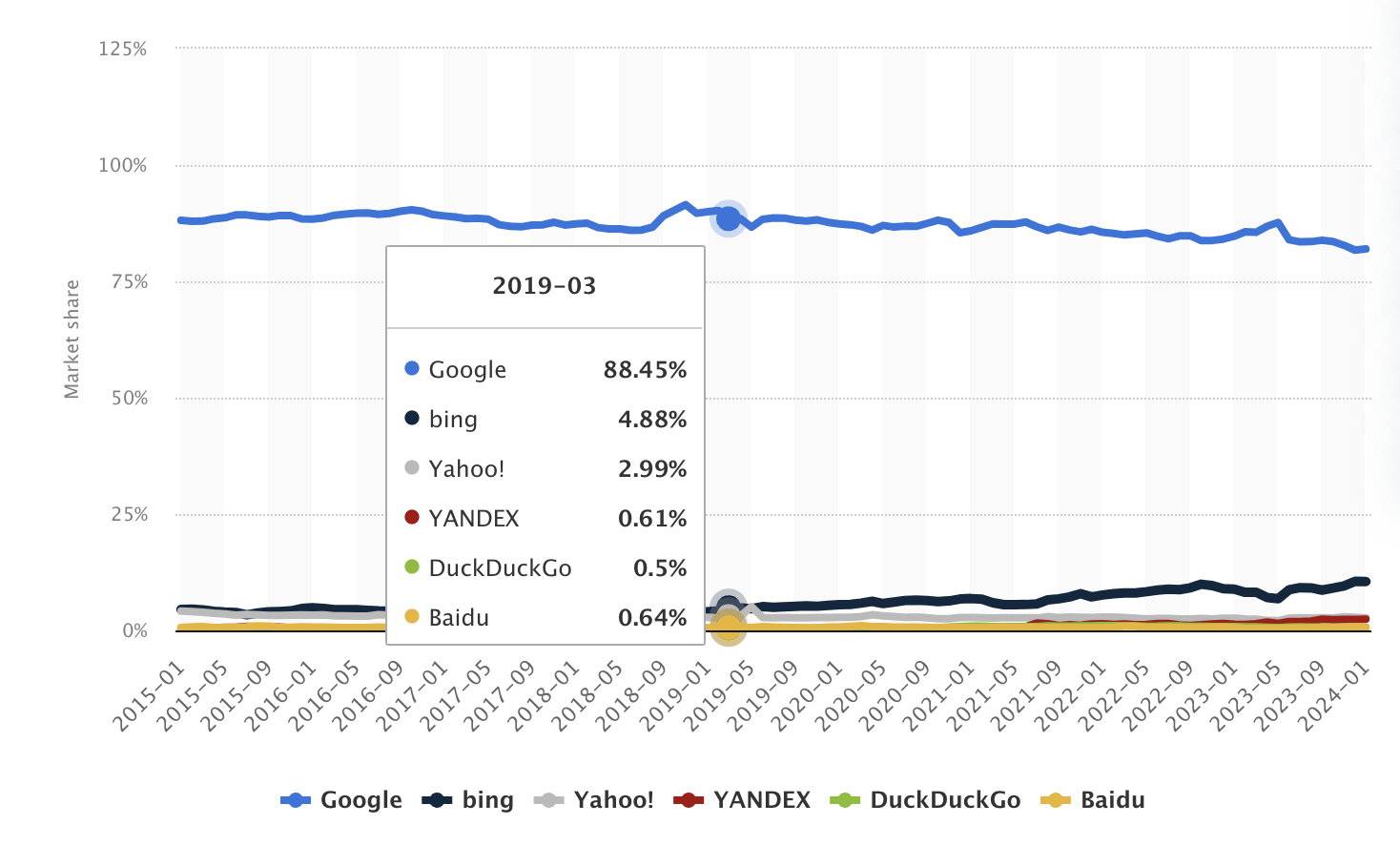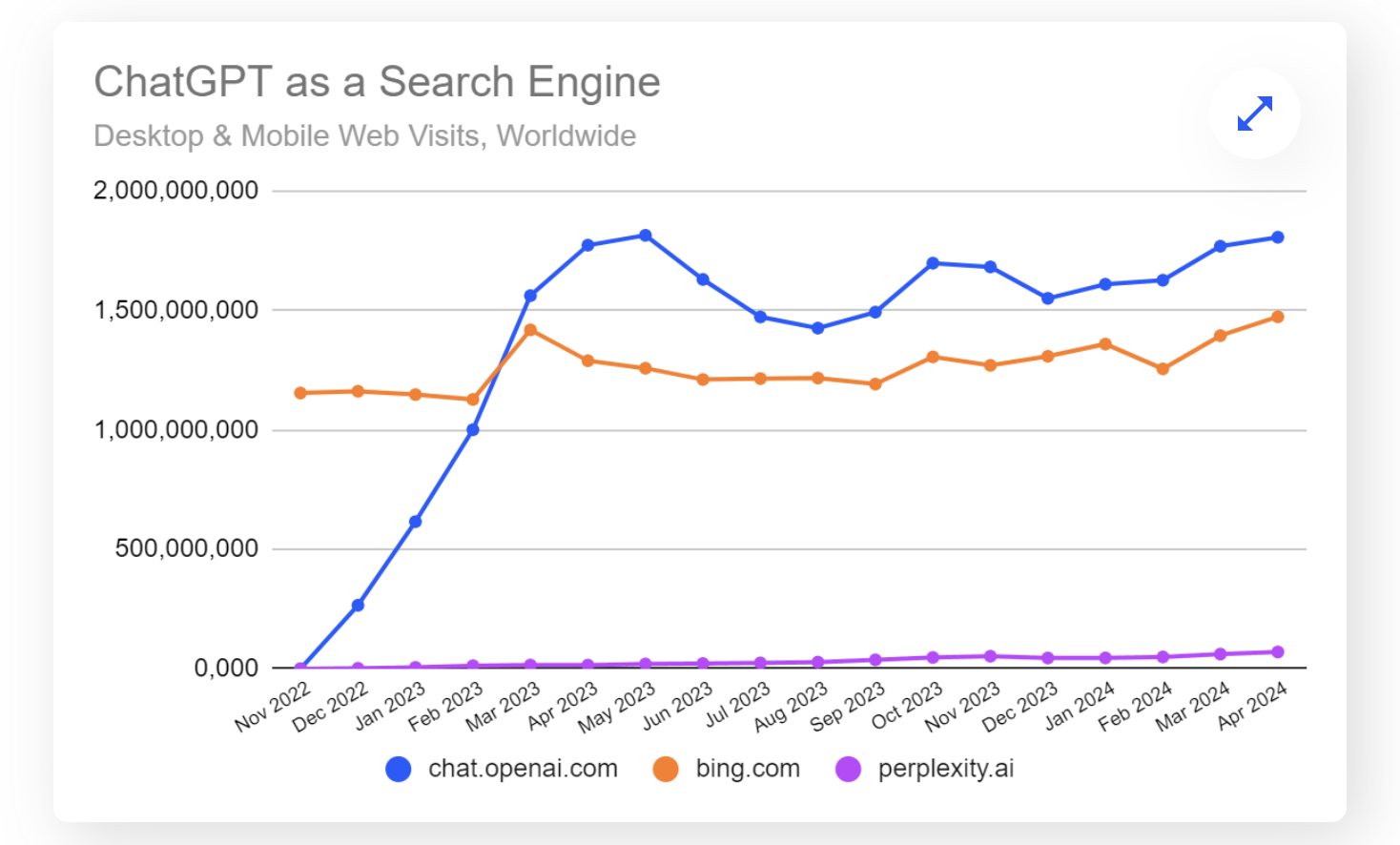The Impact of AI on Search Engines: How Large Language Models Are Reshaping Online Search Behavior

Artificial intelligence (AI), particularly through large language models (LLMs) like OpenAI's ChatGPT, is reshaping how users access and interact with information online. This article examines the impact of AI on search engines, supported by publicly available data and recent news, explores changes in user behavior, and discusses the responses from major search engine companies.
The Evolution of AI in Search
AI has evolved dramatically over the past decade, with machine learning and natural language processing (NLP) taking center stage. ChatGPT and similar LLMs represent the latest breakthroughs in this domain, offering users a more intuitive and conversational approach to information retrieval. These models leverage vast amounts of data and advanced neural network architectures, such as transformers, to understand the nuances of human language and generate coherent, contextually relevant responses.
Quote from Sundar Pichai, CEO of Google:
"AI is one of the most profound things we’re working on as humanity. It’s more profound than fire or electricity." (2021, BBC). This statement reflects the significant impact AI is expected to have, not just on search engines but on society as a whole.
How AI and ChatGPT Are Changing Search Behavior
Since the release of ChatGPT in late 2022, there has been a noticeable shift in user behavior, particularly in the way people approach online searches. Instead of relying solely on traditional search engines, users are increasingly turning to AI-powered chatbots for immediate, conversational, and personalized answers.
According to a 2023 report by Bloomberg, Google’s search traffic has experienced a decline, attributed to the growing use of AI tools. This data highlights the direct impact that ChatGPT and similar models are having on the search engine ecosystem.
Moreover, Statista data from the same year indicates a rapid increase in the use of ChatGPT, with over 100 million users by the start of 2023, surpassing the growth of almost any other online platform in recent history. This shift signals a major disruption in how users access information, choosing AI-driven conversations over traditional search queries.
Quote from Bill Gates, Co-Founder of Microsoft:
"The rise of AI is as fundamental as the creation of the internet itself. It’s going to change everything." (2022, The Verge).
Statistics and Data on Declining Search Engine Usage
Several statistical studies have confirmed the decline in traditional search engine usage as AI tools gain popularity. A study by SimilarWeb in early 2023 reported a 1.5% decline in search engine traffic globally in the months following the launch of ChatGPT. While this percentage might seem small, it represents billions of searches, indicating a growing trend of users migrating away from search engines.
According to statista, Bloomberg, Google’s global traffic in early 2023 reached record lows, prompting the company to respond urgently. These statistics underscore the disruptive nature of AI tools like ChatGPT, which are attracting users seeking more conversational, efficient ways to find information.


The "Code Red" Response from Google
In response to the surge in AI tool usage, Google’s CEO Sundar Pichai reportedly issued a "Code Red" in late 2022, signaling the urgency with which the company viewed this growing threat to its core search business. This internal alert underscored Google’s recognition of the disruptive potential of AI tools like ChatGPT, as reported by CNN. Google, long considered the leader in search, faced increasing pressure to adapt and innovate.
In response, Google quickly accelerated its efforts to integrate AI into its own search platform. In February 2023, Google introduced Bard, an AI-driven chatbot designed to compete directly with ChatGPT. This move highlighted the company's strategic shift toward conversational AI to maintain its dominance in the search engine market.
The Broader Impact on the Search Ecosystem
The rise of AI and LLMs is not just affecting user behavior; it’s also influencing other areas of the search ecosystem, including SEO practices, content creation, and digital marketing. As AI tools become more proficient at generating content and answering queries, businesses and content creators need to adapt their strategies to remain visible.
SEO and AI-Generated Content
SEO (Search Engine Optimization) practices are undergoing significant changes due to AI. Traditionally, SEO has focused on optimizing content for search engine algorithms, but with the growing prominence of AI-driven tools, businesses must also consider how AI models interact with content. According to Search Engine Journal, SEO experts are now optimizing content not just for search engines like Google but also for AI platforms that generate their own answers to user queries.
This shift means that content creators are focusing more on producing high-quality, authoritative content that stands out in both search engines and AI-generated responses. AI is expected to redefine the criteria for what ranks well in search results, with a greater emphasis on expertise, relevance, and user engagement.
Quote from Danny Sullivan, Public Liaison for Search at Google:
"The core idea behind search will stay, but it’s going to be augmented by AI and machine learning in ways we’re only beginning to understand." (2023, Search Engine Land).
Content Creation and AI Tools
AI tools are transforming content creation by automating parts of the writing process. Tools like ChatGPT have made it easier for businesses to generate large volumes of content quickly. However, this also raises concerns about content quality, originality, and authenticity. As Search Engine Journal notes, the future of content creation will likely involve a balance between human creativity and AI-driven efficiency, with an increasing emphasis on maintaining high standards to rank well in both AI platforms and traditional search engines.
User Experience and Engagement
Another critical area impacted by AI tools is user engagement. AI’s ability to generate highly personalized, conversational responses is creating new expectations for how users interact with digital platforms. According to Forbes, users are increasingly gravitating toward platforms that provide tailored, interactive experiences, making traditional search engines feel more static and less engaging.
The rise of voice search and conversational AI is reshaping user expectations, and search engines must adapt to this new demand. Companies like Google are investing heavily in integrating AI into their platforms to meet these changing expectations. Google’s Bard represents one such effort to create a more interactive, AI-driven search experience.
The Future of Search Engines in an AI-Driven World
The future of search engines is closely tied to the ongoing development of AI technologies. As AI becomes more sophisticated, search engines will need to incorporate AI more deeply into their core operations to remain competitive. This integration will likely include advancements in NLP, machine learning, and data analytics to create more personalized, efficient search experiences.
Predictions and Trends
Experts predict that the search engine industry will see increased collaboration between AI developers and traditional search platforms. Companies may form partnerships with AI providers to integrate advanced AI capabilities into their search engines, blurring the lines between search engines and AI-driven conversational tools.
However, this shift also raises ethical concerns, particularly around data privacy and algorithmic biases. As AI tools become more prevalent in search, companies will need to ensure that they handle user data responsibly and avoid reinforcing harmful biases in their algorithms.
Quote from Tim Berners-Lee, Inventor of the World Wide Web:
"We need to be thoughtful in how we develop AI for the future, ensuring that it serves humanity as a whole and doesn’t reinforce existing inequalities." (2022, The Guardian).
Wrapping up
The rise of AI, particularly large language models like ChatGPT, is having a profound impact on search engines. From changing user behavior to altering SEO practices and content creation, AI is reshaping the digital landscape. Companies like Google are responding to this shift by integrating AI more deeply into their search platforms, but the future of search will likely involve even more innovation and adaptation.
As AI continues to evolve, businesses and individuals alike must stay informed about these changes and adjust their strategies accordingly. The future of search engines is undoubtedly AI-driven, and those who adapt to this new reality will thrive in the rapidly changing digital world.